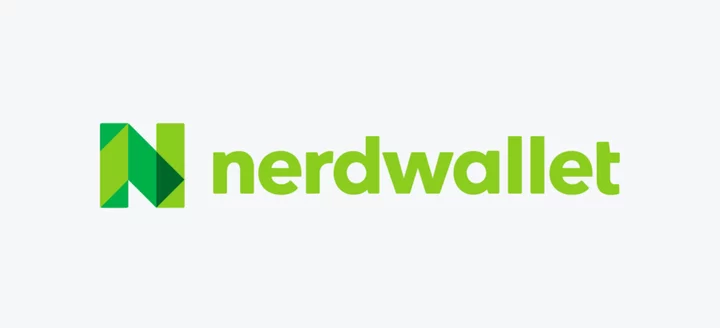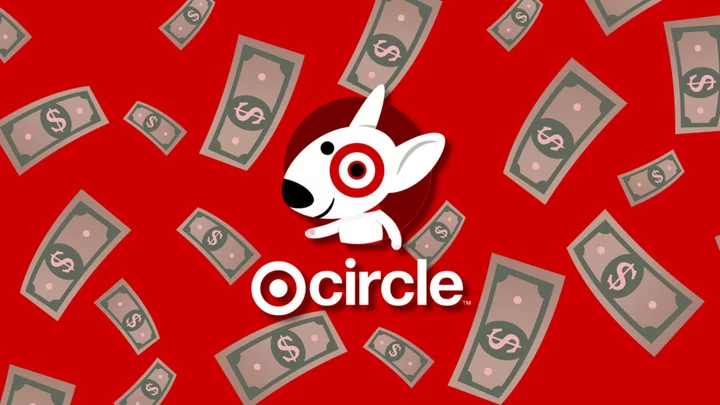NerdWallet's mission is to provide consumers and small businesses with the tools, information, and insight they need to make financial decisions. It teaches you what your credit score is and helps you track it, and it has lots of information to help improve your financial literacy. NerdWallet also lets you import financial transactions, meaning the line items from your banks and credit cards, so you can use the app to track your net worth and cash flow. NerdWallet is free, supported by targeted recommendations for financial products like credit cards and mortgages, though the ads aren't intrusive. With a clear and intuitive user interface, NerdWallet is one of the best personal finance apps you can download.
Since our last review, NerdWallet has improved its dashboard, created an effective new cash flow view, and introduced an innovative implementation of the 50/30/20 budget (more on that later). While NerdWallet is clearly among the best personal finance apps, our Editors' Choice winner is Simplifi by Quicken, which has more tools for budgeting and managing your money. Simplifi is not free, however, and NerdWallet is.
What Is a Credit Score?
A credit score is just what it sounds like: It’s a grade on your creditworthiness, only instead of A–F, the range is 300–850. Checking their credit scores is one of the most common things people do with a personal finance app.
If you’ve ever applied for a credit card, car loan, or mortgage, the lender has requested your credit score to make sure they think you are a good candidate for the loan or line of credit you want. Potential employers and landlords sometimes pull this number, too, as a way to check that you're in good financial standing.
How is the number calculated? Credit card issuers and other loan originators report the current status of your debt (such as how much debt you have and whether you make on-time payments) to three major reporting bureaus: Equifax, Experian, and TransUnion. Each of those bureaus computes a credit score based on that data, and they are usually slightly different from one bureau to another. Plus, your score may change regularly, which is a good reason to keep a close watch on it even if you’re not applying for more credit. An unexpected change in your credit score could also tip you off early to fraud (for example, someone taking out loans in your name) and data breaches.
You want to keep your credit score as high as you can, and knowing what factors go into it is critical for this. NerdWallet has articles and interactive content that explain it all in great detail and help you stay on top of your score.
How Do You Sign Up for NerdWallet?
You provide the same information to NerdWallet as you do to competing sites like WalletHub. After you create an account by entering a username and strong password, the app asks for contact information and a Social Security number, which it needs to pull your credit information. If you want to include transactions from your bank accounts and credit cards, you must also verify your mobile phone number.
(Credit: NerdWallet)Is NerdWallet Safe to Use?
Yes, NerdWallet is safe. NerdWallet supports multi-factor authentication (MFA) in addition to other industry-standard security controls. It encrypts your financial data (128-bit encryption) for enhanced safety. To connect to your financial accounts and import transactions, which is optional, NerdWallet uses Plaid and Yodlee, two trusted third-party platforms that have their own security protocols, to make the actual connections between NerdWallet and your banks. See NerdWallet’s security page to learn more.
What Is Two-Factor Authentication?What Does NerdWallet Tell You About Your Credit Score?
Once you give NerdWallet your Social Security number and connect your financial accounts (if you choose), you get insight about your financial state as soon as you log in, including your most recent credit score. The app doesn’t overwhelm you with financial product recommendations right at first like Credit Karma does, though it does provide links to the products it supports, like credit cards and personal loans, mortgages and auto loans, and auto and life insurance.
NerdWallet only pulls one credit score from TransUnion once a week, unlike Credit Karma, which provides two scores daily. Like Credit Sesame and others, it shows you the factors that go into your credit score, ranked from highest impact to lowest: payment history, credit utilization, age and mix of accounts, balances, and recent inquiries. A credit simulator shows you what would happen if you took specific actions, like opening a new credit card or letting accounts go past due. Finally, you can see your full credit report, which every competing app also does.
Calculators round out the app’s credit score tools and data. They focus on paying off debt faster, calculating total loan costs, balance transfers, and income taxes. I am happy with NerdWallet’s coverage of credit score issues, especially considering how much educational content it offers.
(Credit: NerdWallet/PCMag)NerdWallet’s Dashboard
NerdWallet’s dashboard is a mercifully short page. Other personal finance apps tend to give you too much information, which can be overwhelming and confusing. NerdWallet's dashboard includes newly redesigned Weekly Insights, a personalized set of cards containing suggestions for your weekly check-in that you can flip through. You also see your credit score, your current month’s cash flow, your real-time net worth (with links to deeper details), and links to financial product offers.
What Sets NerdWallet Apart?
NerdWallet can calculate your net worth because it supports connections with your online financial accounts, allowing you to import transactions. Not many other personal finance apps can show you every single transaction from your bank accounts and credit cards, though Mint does. The difference is that Mint doesn't give you in-depth information and analysis of your credit score or show you your credit report. Mint only shows one credit score (from TransUnion) and gives a light summary of the factors that affect it.
In NerdWallet, it’s not easy to find the list of transactions from your banks and credit cards, and the list of categories for each expense—such as restaurants or rent—isn’t extensive. You can’t add or edit individual categories, but you can enter transactions manually. If you're primarily interested in tracking your spending and income in this way, Mint is better at it.
(Credit: NerdWallet/PCMag)Competing sites, particularly Credit Karma, have some articles about credit scores and how to improve them. But NerdWallet excels here. It doesn’t just teach you about credit scores. It covers numerous aspects of personal finance, including budgeting and saving, making money, and investing. Multiple self-guided online courses cover topics like building credit. There are also podcasts and tons of articles that are well-researched and clearly written.
The 50/30/20 Budget Rule
NerdWallet has another unique feature that can help you zero in on your spending and try to improve it—cash flow graphs that help you identify spending trends over time. NerdWallet supports the 50/30/20 budget rule. That is, 50% of your spending should be for needs, 30% for wants, and 20% for savings and debt repayment.
The app uses pre-assigned categories for this first iteration of the 50/30/20 budget, but the company plans to make this new feature more customizable in the future. As it is, it’s still a good learning tool that can help you understand and better budget your money. If you want a more traditional budget tool that lets you set spending goals for a variety of categories and link them to online bank accounts, we recommend Mint, which is also free.
Another differentiator: NerdWallet has a section dedicated to financial product offers, rather than peppering the site with them. Instead, it puts them near related editorial content. Its placement of products doesn’t seem as random and ubiquitous as it does on some competing sites.
Differences Between the Mobile App and Web Versions of NerdWallet
(Credit: NerdWallet/PCMag)NerdWallet seems to believe its users are action-oriented, and the mobile app is set up for action. You use it to check a credit score quickly, or see if a specific transaction has cleared, or look for a promising financial product. But you wouldn’t necessarily study financial topics from your phone, so you won’t find the volumes of personal finance editorial content on the mobile apps that appear on the browser-based website.
NerdWallet's mobile apps are focused on the recurring tasks of personal finance management. You will, however, find contextual, relevant content on some pages so that you can learn while you're doing them.
Tops for Teaching Financial Literacy
NerdWallet teaches you about personal finance with well-researched and objective information. No personal finance app that I’ve found comes close to offering the depth, clarity, and volume of knowledge found on NerdWallet’s pages. It’s the best personal finance app for supporting financial literacy, and the only one that can import transactions and calculate your true, real-time net worth.
Our Editors' Choice winner among personal finance apps is Simplifi by Quicken. It does more than NerdWallet, with tools to create budgets and more actively manage your money day to day. NerdWallet is free, though, and Simplifi isn't, so you may still end up using NerdWallet for all the areas where it excels at helping you learn more about money.









